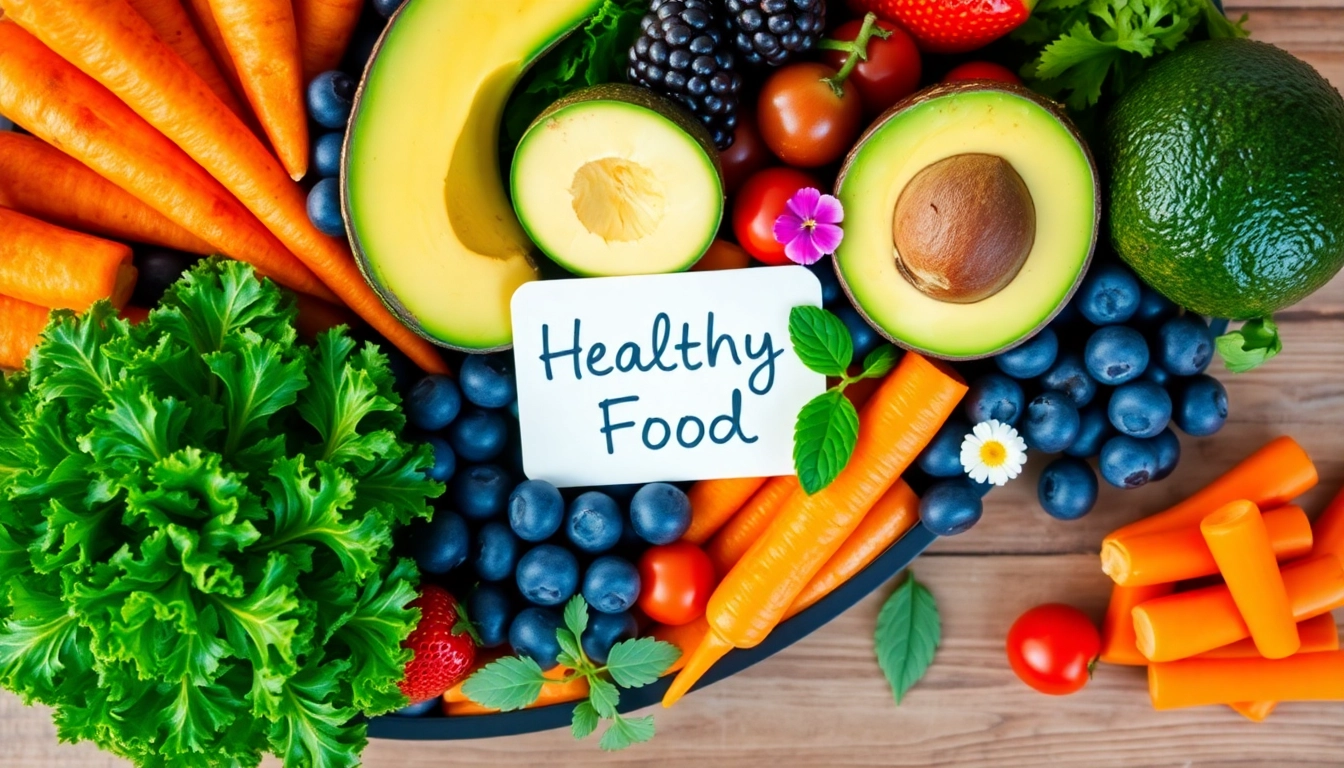Understanding Healthy Food: What It Really Means
The Basics of Healthy Food
Healthy food encompasses a variety of items that provide necessary vitamins, minerals, and other nutrients essential for overall well-being. When we discuss Healthy Food, it is crucial to remember that what is deemed healthy can differ based on individual dietary needs, age, activity levels, and specific health goals. The cornerstone of healthy eating lies in balance and moderation, where one incorporates various food types in appropriate ratios.
Key Components of a Healthy Diet
A healthy diet should chiefly consist of:
- Fruits: Fresh, frozen, or dried, fruits are loaded with vitamins, fiber, and antioxidants.
- Vegetables: A diverse range from leafy greens to root veggies ensures an adequate supply of essential nutrients.
- Whole Grains: These are filled with fiber and help in maintaining a stable blood sugar level.
- Lean Proteins: Foods such as chicken, fish, legumes, and nuts offer the building blocks for muscle repair and overall health.
- Dairy or Alternatives: Rich in calcium and vitamin D, this group supports bone health, with options ranging from low-fat milk to fortified plant-based alternatives.
Common Misconceptions About Healthy Eating
Healthy eating is often clouded with misconceptions that can lead one astray:
- Healthy Food is Expensive: While some healthy options can be costly, many affordable fruits, vegetables, and grains offer great nutritional value.
- Healthy Food is Boring: There’s a wide variety of flavors and cuisines that highlight healthy foods, making meals enjoyable and exciting.
- All Fats are Bad: Healthy fats, like those from avocados and nuts, are crucial for brain health and should be included in moderation.
Top Healthy Food Groups to Incorporate
Fruits and Vegetables: Nature’s Best
Fruits and vegetables should comprise a substantial part of your daily diet. Aiming for at least five servings a day can offer numerous health benefits, including a reduced risk of chronic diseases. They are also low in calories, making them an excellent choice for maintaining or losing weight.
Whole Grains: The Smart Carbs
Whole grains such as brown rice, quinoa, and whole-wheat bread provide a rich source of fiber, which is important for digestive health and can help keep you feeling full longer. Choosing whole grains over refined grains can significantly enhance your diet quality.
Lean Proteins: Essential for Muscle Repair
Incorporating lean proteins such as chicken, turkey, fish, beans, and tofu into your meals can support muscle repair and growth, providing all necessary amino acids without excessive fat. Including various protein sources ensures a diverse intake of essential nutrients.
Healthy Food Preparation Techniques
Cooking Methods that Retain Nutritional Value
The way food is prepared can affect its nutritional content. Here are some techniques to preserve vitamins and minerals:
- Steaming: Retains most of the nutrients compared to boiling.
- Grilling: Imparts a unique flavor without adding extra fat.
- Sautéing: Using minimal oil with high-heat techniques can enhance flavors while keeping nutrients intact.
Meal Prep Tips for Healthy Eating
Meal prepping can facilitate maintaining a healthy diet. Here are some effective strategies:
- Batch Cooking: Prepare large servings of your favorite healthy meals and portion them for the week.
- Invest in Containers: Use clear containers to store prepped ingredients, making it easier to assemble meals.
- Plan Ahead: Design your meals for the week, considering your schedule and any events.
Creating Balanced Meals on a Budget
Eating healthy doesn’t have to break the bank. Here are some tips to create balanced meals economically:
- Shop Seasonally: Seasonal fruits and vegetables are often cheaper and consume fewer resources for transport.
- Buy in Bulk: Grains, nuts, and legumes can be purchased in bulk for a lower price per serving.
- Cook from Scratch: Processed foods can be more expensive and less nutritious than homemade meals.
Healthy Food Recipes to Try Now
Quick and Easy Breakfast Ideas
Starting your day with a healthy breakfast can set the tone for your food choices throughout the day. Consider these recipes:
- Overnight Oats: Combine rolled oats with yogurt or milk, chia seeds, and your favorite fruits. Let it refrigerate overnight.
- Vegetable Omelet: Whisk eggs with spinach, tomatoes, and onions for a nutrient-packed meal.
- Smoothie Bowl: Blend your favorite fruits with yogurt and top with nuts and seeds for added crunch.
Delicious Lunch and Dinner Recipes
Opt for lunches and dinners that are rich in nutrients:
- Quinoa Salad: Mix cooked quinoa with black beans, corn, diced tomatoes, and a squeeze of lime for a refreshing dish.
- Grilled Chicken with Veggies: Marinate chicken breast and grill, serving alongside steamed vegetables.
- Stir-Fried Tofu: Sauté tofu with your choice of vegetables and serve on a bed of brown rice.
Nutritious Snacks for Every Craving
Snacking can be healthy if you choose the right items. Here are some great options:
- Greek Yogurt: Rich in protein and probiotics, it can be topped with fruits for added nutrients.
- Hummus and Veggies: A great source of plant-based protein and fiber, serve with carrot sticks or cucumber slices.
- Dark Chocolate: Choose 70% cocoa or higher for a heart-healthy treat in moderation.
Tracking Your Healthy Eating Journey
Setting Realistic Health Goals
Establishing achievable health goals is pivotal to staying motivated. Consider the SMART criteria—Specific, Measurable, Achievable, Relevant, and Time-bound—to create actionable steps that you can monitor and adjust over time.
Measuring Progress with Nutrition Apps
Various apps are available to assist in tracking your food intake and overall health:
- MyFitnessPal: A popular tool for logging food and exercise, helping to track calorie intake.
- Lose It!: Focuses on weight loss through calorie tracking with user-friendly interfaces.
- Fooducate: Offers insights on the nutritional value of foods scanned via barcode.
When to Seek Professional Dietary Advice
If you find yourself struggling with maintaining a healthy diet or managing health conditions, consulting a registered dietitian can be incredibly beneficial. They can provide personalized plans and support based on your unique health needs.

